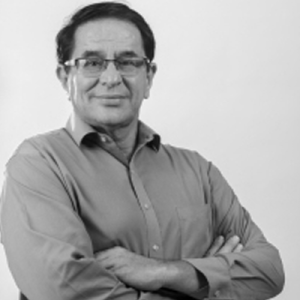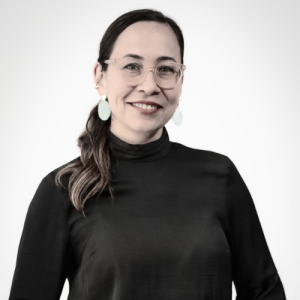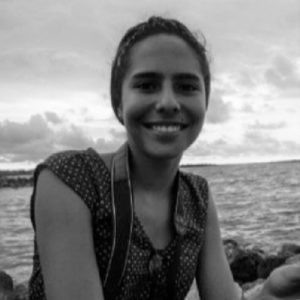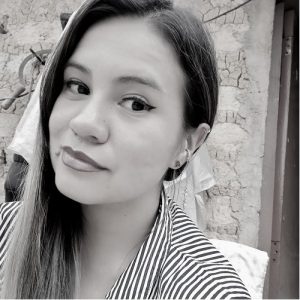BOARD
EXECUTIVE DIRECTOR
CO-INVESTMENTS
COMPLIANCE
PROJECT FOLLOWING
INFORMATION TECHNOLOGY
ADMINISTRATION
SCIENCES
COMMUNICATIONS
POLITICAL INCIDENCE
Valoramos tu privacidad
Usamos cookies para mejorar su experiencia de navegación, mostrar anuncios o contenido personalizados y analizar nuestro tráfico. Al hacer clic en "Aceptar todo", usted acepta nuestro uso de cookies.
Utilizamos cookies para ayudarlo a navegar de manera eficiente y realizar ciertas funciones. Encontrará información detallada sobre todas las cookies en cada categoría de consentimiento a continuación.
Las cookies que se clasifican como "Necesarias" se almacenan en su navegador, ya que son esenciales para habilitar las funcionalidades básicas del sitio....
Se requieren cookies necesarias para habilitar las funciones básicas de este sitio, como proporcionar un inicio de sesión seguro o ajustar sus preferencias de consentimiento. Estas cookies no almacenan ningún dato de identificación personal.
No hay cookies para mostrar.
Functional cookies help perform certain functionalities like sharing the content of the website on social media platforms, collecting feedback, and other third-party features.
No hay cookies para mostrar.
Las cookies analíticas se utilizan para comprender cómo interactúan los visitantes con el sitio web. Estas cookies ayudan a proporcionar información sobre métricas como el número de visitantes, la tasa de rebote, la fuente de tráfico, etc.
No hay cookies para mostrar.
Las cookies de rendimiento se utilizan para comprender y analizar los índices clave de rendimiento del sitio web, lo que ayuda a brindar una mejor experiencia de usuario a los visitantes.
No hay cookies para mostrar.
Las cookies publicitarias se utilizan para proporcionar a los visitantes anuncios personalizados basados en las páginas que visitó anteriormente y para analizar la efectividad de las campañas publicitarias.
No hay cookies para mostrar.
BOARD
EXECUTIVE DIRECTOR
CO-INVESTMENTS
COMPLIANCE
PROJECT FOLLOWING
INFORMATION TECHNOLOGY
ADMINISTRATION
SCIENCES
COMMUNICATIONS
POLITICAL INCIDENCE
Director of Asuera Stiftung since 2019, a Swiss foundation that is committed to sustainable development and creates opportunities for people to improve their living conditions through their own efforts. Served as a member of the Board of Directors of Avina and as secretary of the Viva Trust.
Sean has 30 years of experience in sustainable development. He leads the advisory board of VIVA Trust, a trust created in 2003 that combines productive assets with philanthropic impact to benefit the people of Latin America.
He served as executive director of Avina Foundation from 2006 to 2012 and chaired its board from 2013 to 2024.
He serves on the boards of Ikatú Ventures and World-Transforming Technologies (WTT), both ventures that achieve impact through innovation. With a master’s degree in urban planning from the University of Texas at Austin, he is the author of ColaborAcción: A Practical Guide to Promoting Sustainability.
He is the chairman of the subcommittee for the project to modernize Panama’s marine-commercial legislation. He is the president of the International Bar Association, and a member of the presidential committee for the protection of international and financial services in Panama. He is also a member of the International Maritime Committee. He was head of the Panamanian Association of Maritime Lawyers.
He holds a master’s degree in commercial law from the School of Economics at the University of London, and a bachelor’s degree in law and political science.
He has been a partner at the law firm Arias, Fábrega & Fábrega since 1994. His main areas of work are commercial, corporate and maritime law. He is a private advisor in several fields of expertise: asset management, management and structuring of foundations and trusts, and philanthropic entities, tax planning and corporate consulting. He is also a professional advisor to several NGOs in Panama: MarViva, Avina, América Latina en Acción Solidaria (ALAS), Fundes, Latinoamérica Posible, Red Forum Empresa and Un techo para mi país.

Jorge holds a PhD in marine ecology. His extensive experience in the field has made him a researcher at the School of Biological Sciences, a member of the Postgraduate Academic Committee, coordinator of the Mangrove Forest Ecology and Management Program, and a member of the University Council of the National University of Costa Rica. He has been a visiting professor at institutions in the United States, Latin America, the Caribbean, Australia and Europe. He has also worked as an ad-honorem professor of the Postgraduate Studies System and as an associate researcher at the Marine Research Center of the University of Costa Rica.
Before joining MarViva, he worked with the Tropical Agronomic Research and Teaching Center (CATIE) as a specialist in management of mangrove and wild areas. At the Instituto de Forestería Tropical, Puerto Rico, he served as an instructor of the Tropical Forest Management course, and as an instructor in postgraduate courses of the Organization for Tropical Studies (OTS), where he is also a member of the assembly and the board of directors. He was director of biological inventories at the National Institute of Biodiversity (INBio), director of scientific programs and general director of the OTS.
His experience in mangrove ecology is summarized in several publications, including maps, technical reports, scientific articles and books. His book “The Mangroves of the Central American Pacific” stands out.
 COLOMBIA
COLOMBIABiologist from Universidad Javeriana de Bogotá, Colombia, with a Master’s in Sustainable Management of Aquatic Resources and a PhD in Aquatic Sciences from the University of Jyväskylä, Finland.
She has more than 15 years of experience working for natural resources as a researcher in bio monitoring projects, particularly analyzing the impact of human activities on aquatic ecosystems, as a teacher in schools and universities, and in recent years, as a project manager in organizations dedicated to the protection of the sea, its resources and the human communities that interact with it. She is a devoted mom and culinary apprentice who enjoys books, physical activity, the beach, the mountains and good wine. Her greatest professional motivation is knowing that her work contributes to the sustainable development and progress of the region. Through the projects she works on, she seeks to ensure the fair and sustainable use of marine resources and to reduce social gaps. She sees in MarViva the opportunity to connect the diverse areas of knowledge represented by the excellent professional team, to develop transdisciplinary projects that address the problems of coastal communities and to ensure the protection of the oceans in a comprehensive manner.
“All the tendencies present in the outer world are to be found in the world of our body. If we could change ourselves, the tendencies in the world would also change.” Mahatma Gandhi.
 COLOMBIA
COLOMBIASocial anthropologist from Universidad del Rosario. She is currently completing her master’s degree in Rural Development at the Universidad Javeriana. Her professional experience has focused on the protection and defense of the human rights of historically marginalized communities, and on the research about the forms of local governance regarding natural resources in strategic ecosystems in Colombia.
What she likes about working in MarViva is that conservation is thought of as a participatory process in which management proposals are constructed with the communities that have generated multiple relationships with the territory, and that the objectives of conservation are not solely to guarantee the environmental sustainability of the territory but also the sustainability of the life projects of the communities that inhabit it.
Working in MarViva means advancing in the recognition of community work in these processes and in the construction of conservation models based on social, community, environmental and climate justice. It also means learning from multiple actors in the territories and opening the field of research, public policy and environmental care to the contributions of all interested parties.
Public Administrator and Economist from the Universidad Nacional de Colombia with experience in research, technical assistance and strengthening of value chains of ethnic communities of the Colombian Pacific region. She is convinced of the importance of generating conservation strategies hand in hand with the coastal communities of the country, allowing them to build their own models of sustainable local development.
Addressing local value chains from the perspective of sustainable use of marine-coastal resources implies working permanently in the transformation of community practices and customs that affect the survival of their ecosystems. This is a progressive and long term task, but it is full of learning and small victories, and that is precisely what is most significant about working with MarViva: adapting, learning, unlearning and perceiving firsthand the impact of the actions that are undertaken.
Being part of the MarViva team, being a professional in the area of economic sciences, has given her the satisfaction of putting the economy at the service of nature and the improvement of people’s quality of life.
She enjoys having the beach and the sea as her office, the communities that inhabit it as her work team, and measuring her time according to the tides.
 COLOMBIA
COLOMBIAEnvironmental Administrator from the Universidad Distrital, completing a Master’s degree in Environmental Sciences from the Universidad Jorge Tadeo Lozano.
Gloria has more than 10 years of experience in the interdisciplinary environmental, social and economic approach. She has extensive knowledge in issues related to marine spatial planning; analysis of artisanal and industrial fishing activities, including monitoring, project follow-up and project management, work with Afro-Colombian and indigenous communities and productive associations.
In her work, she enjoys having the opportunity to get to know new places, learn about the cultural and environmental richness of the country, as well as the opportunity to combine technical knowledge with the ancestral knowledge of the communities and contribute to their sense of appropriation.
Working in MarViva means a lot, it is a goal and a great challenge because of its mission of conservation and participatory work and because of the learning it has given her; she wishes to contribute her knowledge in favor of the projects it works on.
Ligia Rodríguez holds a degree in Law and Political Science from the Universidad Latina de Panamá, and a Master’s degree in Environmental Management from the Universidad Latinoamericana de Ciencia y Tecnología. She has 20 years of experience in issues related to the management, defense and strengthening of the legal framework linked to aspects of environmental protection of terrestrial and marine ecosystems, capacity-building actions both in the institutional and non-governmental spheres, also participating in publications related to inter-institutional coordination, public-private collaboration, marine pollution by disposable plastics and fisheries legislation in Panama.
She is Legal Advisor of Fundación MarViva in Panama, where she participates in the execution of projects related to the problem of marine pollution by disposable plastics, the fight against illegal, unreported and unregulated (IUU) fishing, and initiatives that contribute to strengthening the sustainable management of marine-coastal areas and their resources.